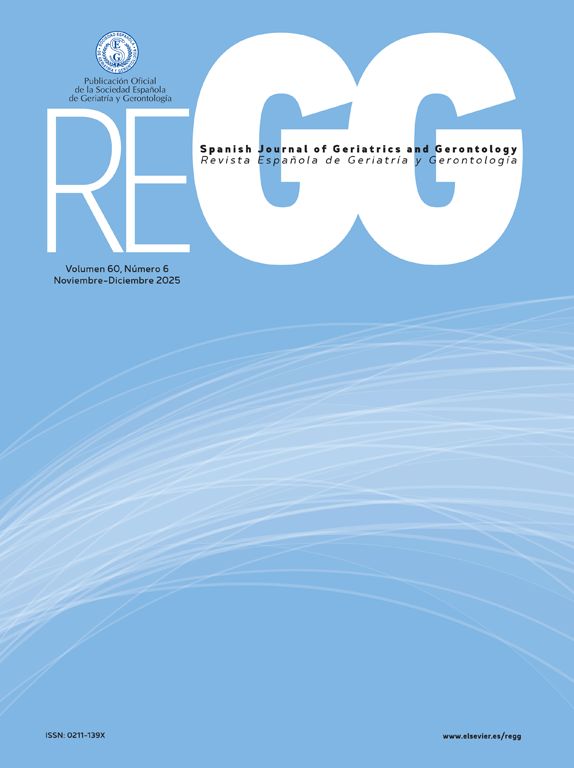El edadismo es la percepción negativa de las personas por su edad. El objetivo de esta investigación fue analizar los niveles de edadismo y su asociación con el sexismo y otros factores en universitarios.
Materiales y métodosSe llevó a cabo un estudio transversal a través de una encuesta online entre los estudiantes de la Universidad de Granada (España). Se recogió información sobre variables sociodemográficas y académicas y se administró el Cuestionario de estereotipos negativos hacia la vejez (CENVE), la Escala de sexismo ambivalente (ASI), el Cuestionario breve de los cinco grandes rasgos de personalidad (BFPTSQ), la Escala sobre la ansiedad por el envejecimiento (AE) y la Escala sobre el contacto con personas mayores (CPM). Se determinaron los niveles de edadismo y se exploraron asociaciones con otras variables. A continuación, se realizó un modelo de regresión logística binaria para conocer los factores asociados a su presencia.
ResultadosParticiparon doscientos sesenta y tres (263) estudiantes. La mayoría presentaban niveles de edadismo bajos o muy bajos (83,3%). Los estudiantes más edadistas presentaban mayores niveles de sexismo hostil (OR=1,07; p<0,01) y más ansiedad por el envejecimiento (OR=1,10; p<0,05) que los estudiantes que puntuaron bajo en edadismo. Por otra parte, ser alumno de grado fue un factor protector frente a este tipo de sesgo comparado con la realización de estudios de posgrado (OR=0,31; p<0,05).
ConclusiónUn mayor sexismo hostil y una mayor ansiedad por el envejecimiento se relacionan con un mayor edadismo en los estudiantes de la Universidad de Granada (España). Las universidades deben brindar conocimiento a sus alumnos sobre este problema y desarrollar programas dirigidos a evitar la discriminación de las personas mayores.
Ageism is the negative perception towards others based on age. The aim of this research was to analyze the levels of ageism and its association with sexism and other factors in university students.
Materials and methodsCross-sectional study among the students of the University of Granada. The data was collected through an online survey. Information on sociodemographic and academic variables was collected together with the Negative Stereotypes Questionnaire towards Old Age (CENVE), the Ambivalent Sexism Scale (ASI), the Brief Version of the Big Five Personality Inventory (BFPTSQ), the Anxiety Scale for Aging (AE) and the Contact with the Elderly Scale (CPM). Ageism levels were determined and associations with other variables were analyzed. A logistic regression model explored ageism’ associated factors.
ResultsTwo hundred and sixty-three students participated. Most had low or very low levels of ageism (83.3%). The most ageist students showed higher hostile sexism (OR=1.07; p<.01) and higher aging anxiety (OR=1.10; p<.05) than students with high scores in ageism. Graduate students showed protector OR for ageism when compared to postgraduate students (OR=.31; p<.05).
ConclusionsHigher hostile sexism and aging anxiety are associated with higher ageism in students from the University of Granada. Universities must include in their study plans knowledge about this problem and develop programs aimed at avoiding discrimination in the elderly.









